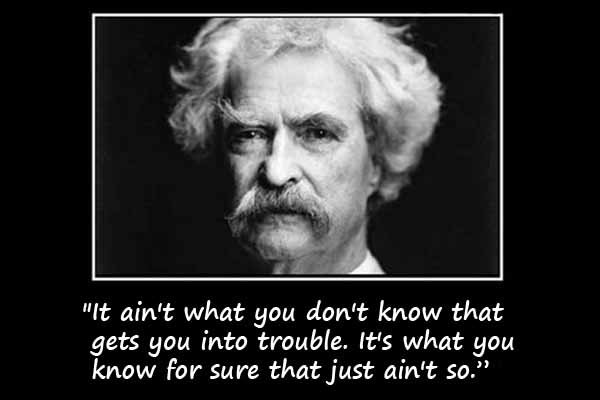Wednesday, December 28, 2011
and the tongue is a fire
My attention was caught by this biblical quote in Marilynn Robinson's novel GILEAD (2004). So I looked it up. So much poetic expression in this General Epistle of James. Here are the surrounding verses.
3:2 For in many things we all stumble. If any stumbleth not in word, the same is a perfect man, able to bridle the whole body also. 3:3 Now if we put the horses’ bridles into their mouths that they may obey us, we turn about their whole body also. 3:4 Behold, the ships also, though they are so great and are driven by rough winds, are yet turned about by a very small rudder, whither the impulse of the steersman willeth. 3:5 So the tongue also is a little member, and boasteth great things. Behold, how much wood is kindled by how small a fire! 3:6 And the tongue is a fire: the world of iniquity among our members is the tongue, which defileth the whole body, and setteth on fire the wheel of nature, and is set on fire by hell. 3:7 For every kind of beasts and birds, of creeping things and things in the sea, is tamed, and hath been tamed by mankind. 3:8 But the tongue can no man tame; it is a restless evil, it is full of deadly poison. 3:9 Therewith bless we the Lord and Father; and therewith curse we men, who are made after the likeness of God: 3:10 out of the same mouth cometh forth blessing and cursing. My brethren, these things ought not so to be. 3:11 Doth the fountain send forth from the same opening sweet water and bitter? 3:12 Can a fig tree, my brethren, yield olives, or a vine figs? Neither can salt water yield sweet. 3:13 Who is wise and understanding among you? let him show by his good life his works in meekness of wisdom. 3:14 But if ye have bitter jealousy and faction in your heart, glory not and lie not against the truth. 3:15 This wisdom is not a wisdom that cometh down from above, but is earthly, sensual, devilish. 3:16 For where jealousy and faction are, there is confusion and every vile deed. 3:17 But the wisdom that is from above is first pure, then peaceable, gentle, easy to be entreated, full of mercy and good fruits, without variance, without hypocrisy. 3:18 And the fruit of righteousness is sown in peace for them that make peace. eBible
And that is a first century CE philosopher with a linguistic bent saying Life's what you make it with your discourse. Language matters much, content, diction, tone and attitude in context, and our speech acts determine war and peace, happiness and suffering. It also makes me think how much linguistics (before the term) grew out of the translation and interpretation of religious scripts.
I only read Housekeeping this month and now GILEAD. What a writer! Encouraging that she began later in life!
Friday, October 28, 2011
The slobbery origins of speech
Monday, August 15, 2011
LCNAU - the Languages and Cultures Network for Australian Universities
Monday, August 8, 2011
Layla K Paada
Sunday, August 7, 2011
The poetry of Bill Ndi
Bill writes in both French and English
Sing Love 101
Toil and Delivery
or look up all Bill's work on Amazon.com and many samples at
http://www.postnewsline.com/bill-f-ndi/
Sunday, February 20, 2011
Alexander Adelaar on historical linguistics
Saturday, February 19, 2011
"Christmas Tree – Genealogy of an Island"
A geologist friend of mine used to say that the only thing you can do with Languages and History is teach languages and history. (Surely geology is the history of the planet under its skin.) This talk "Christmas Tree – Genealogy of an Island" presented by Hélène Bartleson at the National Archives of Australia in Perth on 23 February 2010 shows how those two fields can yield such personally rewarding knowledge. Her dad was fascinated by old cemeteries especially with Chinese headstones and their 'hidden history' of itinerant Chinese tinkers and peddlers. 'He was fascinated by their lives, I was fascinated by their language which I did eventually get to study, and it has been a huge help to me, as you'll see shortly.' Hélène also reads Jawi (Malay written with an adapted Arabic script).
She describes photos taken by 'poor Fred Christian ... of mixed-race groups together; the Malays and Chinese and the Europeans were all together and they were all enjoying themselves and actually talking to each other.' Christmas Island sounds like a symbol of multicultural Australia, of what our world might be if everybody just had Hélène's curiosity and interest in people, different people whose hidden histories require us to make the effort to learn their languages. How terrible that it is instead the place currently associated with refugee detention centres and boating tragedies. Read "Christmas Tree – Genealogy of an Island". There's an audio file so you can download and hear it also - link at bottom of that Archives of Australia page. Christmas Island on Wikipedia and on googlemaps.
Saturday, February 12, 2011
une culture où on est belle
Tuesday, January 4, 2011
Words sing, hurt, teach, sanctify
BUT
The basic tool for the manipulation of reality is the manipulation of words. If you can control the meaning of words, you can control the people who must use the words.
~ ~ ~Philip K. Dick
AND
A word is not a crystal, transparent and unchanged; it is the skin of a living thought, and may vary greatly in color and content according to the circumstances and the time in which it is used.
~ ~ ~Oliver Wendell Holmes
More amusing, provoking quotations about words and see my collection of pro-languages quotes down in left hand column.








 http://www.mckinsey.com/locations/ukireland/publications/pdf/Education_report.pdf
http://www.mckinsey.com/locations/ukireland/publications/pdf/Education_report.pdf
